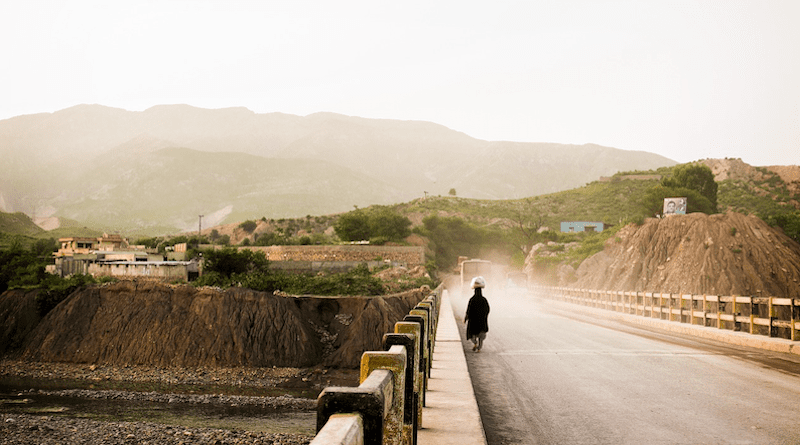Pakistan: Women’s Struggle Indicates Mission Failure
By UCA News
By Kamran Chaudhry
(UCA News) — The popular Ichra market in Pakistan’s Lahore city made international headlines last week after a Muslim woman wearing a dress decorated with the Arabic word “Halwa” (beautiful) faced the ire of a mob of some 200 men. The mob falsely accused her of committing blasphemy by defaming Islam.
The woman could have been assaulted, beaten, and even lynched by the mob like several others, who have been killed on the streets for blasphemy. Mobs have killed at least 70 people in Pakistan since 1990 for allegedly insulting Islam.
The woman survived the ordeal thanks to another woman — a top police officer. Assistant Superintendent of Police (ASP) Syeda Shehrbano Naqvi put her life in danger to take the blasphemy accused out of the mob fury.
Naqvi became a celebrity superwoman overnight in the Muslim-majority nation.
In a talk show on March 3, five days ahead of International Women’s Day, Naqvi described the situation of women in Pakistan, based on the experience of saving the blasphemy-accused woman from the mob.
“A woman cannot engage in discussion. She cannot argue in English. She cannot get her hair dyed. It’s gonna come crashing down on her if she wears a kurta [loose shirt] without a dupatta [a long stole to cover her chest],” she said.
The woman in the market tried to reason with the men. That further angered the mob, said Naqvi.
The subhuman treatment of women and violence against them perpetrated by men is common in a male-dominant Pakistani society that takes pride in following Islamic teachings.
A medieval feudal mindset that treats men as masters and women as servants, runs through the mainstream social psyche worsening the condition of Pakistani women.
Poverty and lack of education aggravate the situation. For example, in the Ichara market incident, no one in the mob could read and understand what was written on the woman’s dress. They took the Arabic letters for some Quranic words and hence considered it blasphemous.
Political instability adds to the situation. Power-hungry politicians tacitly support religious fanaticism and orthodoxy for popularity. They seldom stand up for social reforms and the rights of women lest they upset fanatic leaders who control the mob of the poor and ill-educated majority.
The saddest contributors are the Western-educated and English-speaking men, who remain silent. Although expected to be torchbearers of liberalism and gender equality, they live an invisible mute life in Pakistani society. Their silence makes women’s suppression easier.
One example is the opposition to the Aurat (women’s) March on International Women’s Day. In this simple rally, held since 2019 in Punjab province’s capital city of Lahore, women march on the streets with banners and placards, asserting their rights and dignity.
Even five years after it began, the rally has failed to garner public support. On the other hand, its organizers now face various challenges including a blasphemy case in court.
The authorities refused permission for this year’s rally, forcing the women’s groups to go to court. On March 4, the Lahore High Court granted permission for the rally and dismissed objections that argued the rally was “unacceptable in an Islamic society.”
Religion plays a major role. The Council of Islamic Ideology, a constitutional body, has blocked several pieces of legislation that could at least, to some extent, end discrimination and subjugation of women.
Instead, the council put forth ridiculous proposals including allowing men to “lightly” beat their wives to correct them for faults, prohibiting female nurses from tending to male patients and banning them from working in media.
The council’s suggestions, however, did not get approval from the lawmakers but it still has considerable influence in further emboldening religious fanatics who dream of establishing a so-called Islamic welfare state.
Where are the Catholic women and their leaders in this struggle?
The women’s group in Lahore archdiocese has decided not to join the mainstream women’s march. Instead, it plans a women’s day program in Youhanabad, a Christian-majority neighborhood, about 15 kilometers from Ichra market.
Women belonging to ethnic and religious minority groups are the worst sufferers of prejudice and discrimination in a country where minorities are treated like second-class citizens by many in the majority community.
Women from minority communities, such as Christians, are on the bottom rung when it comes to rights and equality. They are not only treated as subjects by males in the family and society but also treated by mainstream Muslims as outcasts and servants.
Every year, hundreds of minority girls and women are abducted, forcibly married and converted by Muslim men. Last year, 110 Hindu and 26 Christian girls and women became victims of such forced marriages, according to the Lahore-based Center for Social Justice. About 57 percent of the victims were aged 14-18.
Yet the Catholic hierarchy and lay leaders are reticent. They also influence Catholic women’s groups to keep away from the women’s march, seemingly to avoid controversy and backlash from religious hardliners.
Internally, women’s rights are not yet a priority for the Church in Pakistan.
Just as in most South Asian nations, women are absent in the Church’s key roles and decision-making bodies in Pakistan too. The Church needs to become an exemplary community of equals before preaching gender rights to others. And it is a tough call.

